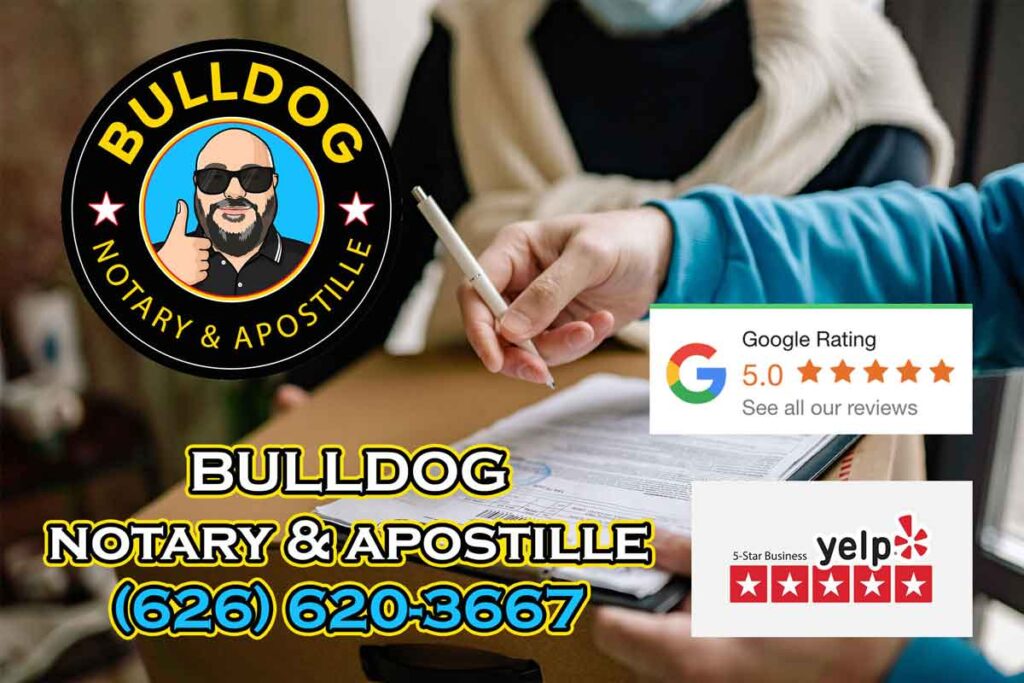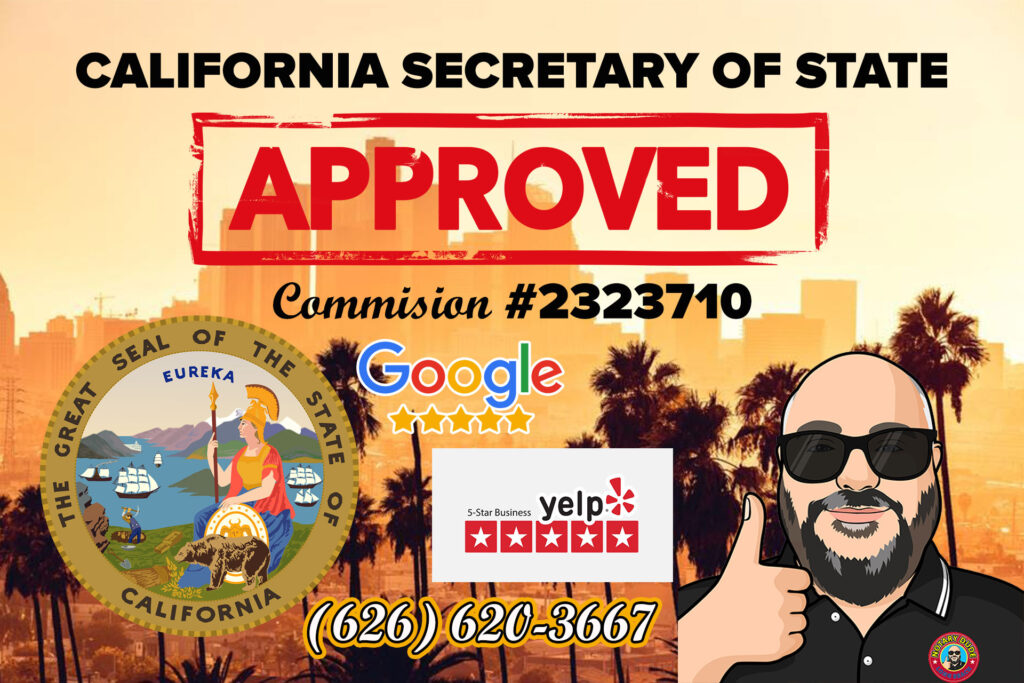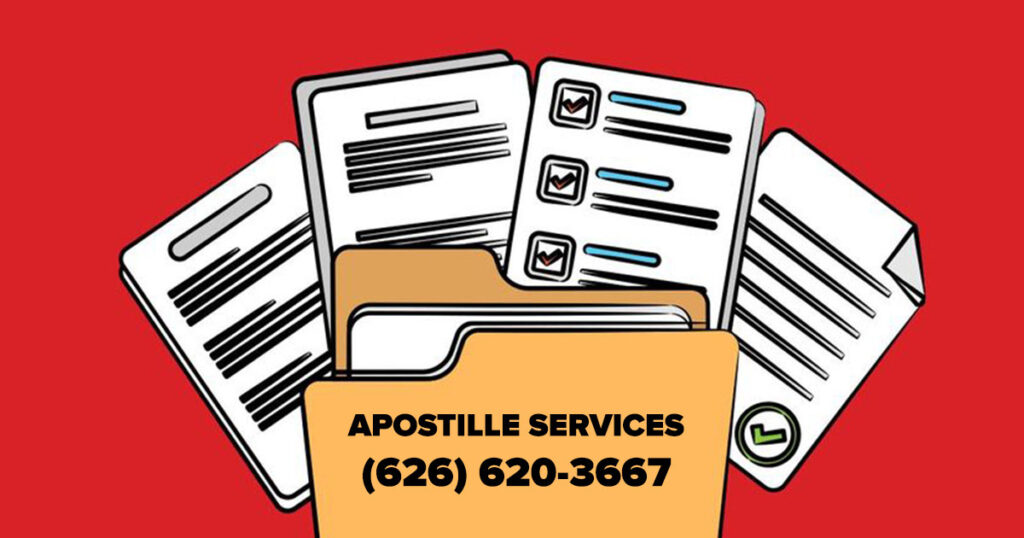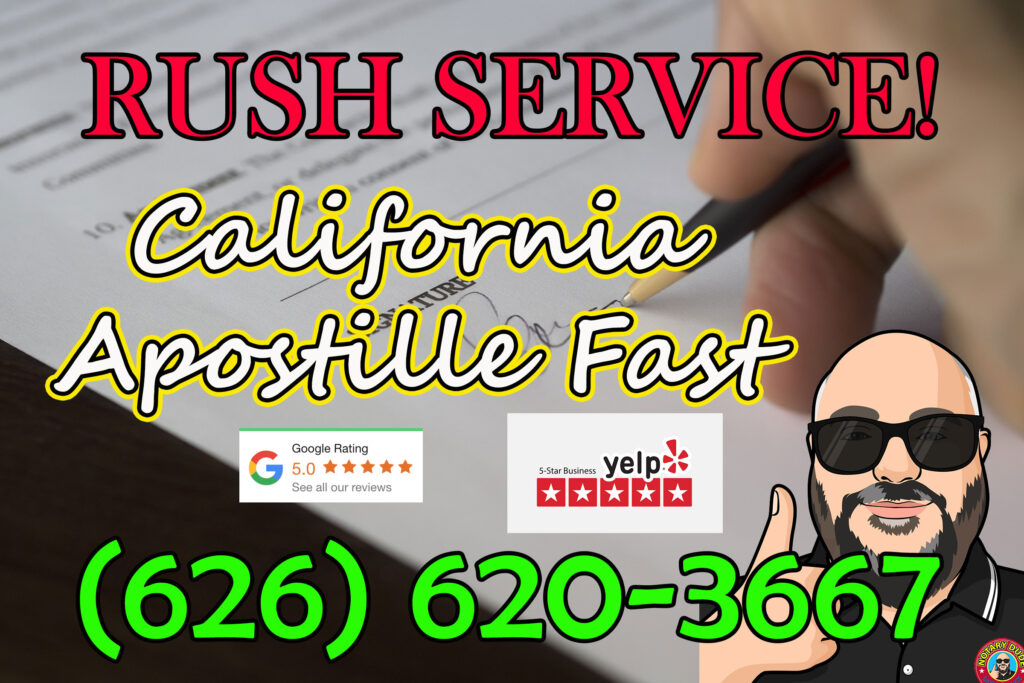When it comes to legal documents, authenticity and integrity are of utmost importance. That’s where a notary public plays a crucial role. A notary public is a licensed professional appointed by the state government to verify the authenticity of signatures, administer oaths, and certify documents. In this article, we will explore the The Role of a Notary Public in Protecting Consumer Rights and ensuring the validity of important legal transactions.

Ensuring Document Authenticity
One of the primary responsibilities of a notary public is to ensure the authenticity of documents. By witnessing the signing of a document and affixing their official seal or stamp, a notary public confirms that the signatures on the document are genuine. This verification process helps protect consumers from fraud and ensures the validity of legal transactions.
Certifying Copies
Notary publics also play a crucial role in certifying copies of important documents. Whether it’s a passport, driver’s license, or educational certificate, obtaining a copy certification from a notary public adds an extra layer of authenticity. This certification can be valuable when submitting documents to authorities, such as for immigration purposes or educational institutions.
Facilitating Apostille Services
Apostille services are required when dealing with international documents. An apostille is a form of authentication that certifies the validity of a document for use in countries that are party to the Hague Convention. Notary publics often offer apostille services or can guide you through the process. They ensure that your documents meet the specific requirements set forth by the California Secretary of State, allowing them to be recognized and accepted abroad.

Protecting Consumer Interests
A notary public acts as an impartial witness to prevent fraudulent activities and protect consumer interests. By verifying the identity of the individuals signing documents, a notary public ensures that all parties involved have the legal capacity to enter into agreements. This helps prevent coercion, identity theft, and other fraudulent practices that could jeopardize consumer rights.
Educating Clients
Notary publics also play an educational role, guiding clients through the intricacies of legal procedures and documentation. They can explain the difference between an authentication and an apostille, assist in filling out necessary forms, and provide valuable insights into the requirements for specific transactions. This expertise ensures that consumers have the necessary knowledge to navigate the legal landscape confidently.
Popular Consumer Rights Issues Today
As consumers, we have certain rights and protections that are designed to ensure fair and honest business practices. However, there are several consumer rights issues that continue to prevail in today’s marketplace. It is essential to be aware of these issues to protect yourself as a consumer. In this article, we will discuss some of the popular consumer rights issues that you should be mindful of.
1. Misleading Advertising
Misleading advertising is a prevalent consumer rights issue that often leaves consumers feeling deceived or cheated. Businesses may engage in false or exaggerated claims about their products or services to attract customers. It is crucial to read product descriptions carefully and look for any disclaimers or hidden fees before making a purchase. If you encounter misleading advertising, you can file a complaint with the Federal Trade Commission (FTC).
2. Unfair Billing Practices
Unfair billing practices can be a frustrating consumer rights issue. Hidden fees, unauthorized charges, or overcharging are all examples of unfair billing practices. It is important to review your bills and invoices carefully and dispute any discrepancies immediately. If you encounter unfair billing practices, you can contact your local consumer protection agency or file a complaint with the Consumer Financial Protection Bureau (CFPB).
3. Product Safety and Recalls
Product safety is a significant concern for consumers. Defective or unsafe products can pose serious risks to consumers’ health and safety. It is crucial to stay informed about product recalls and take necessary actions if you own a recalled product. The Consumer Product Safety Commission (CPSC) is responsible for monitoring product safety and issuing recalls.
4. Identity Theft and Data Breaches
Identity theft and data breaches have become increasingly common in today’s digital age. Cybercriminals can steal personal information and use it for fraudulent activities. To protect yourself, it is important to use strong and unique passwords, be cautious of phishing attempts, and monitor your financial accounts regularly. If you suspect that you have become a victim of identity theft, you should report it to the Federal Trade Commission (FTC).
5. Deceptive Business Practices
Deceptive business practices involve businesses engaging in dishonest or fraudulent behavior to exploit consumers. This can include false advertising, bait-and-switch tactics, or failure to honor warranties. If you encounter deceptive business practices, you can report it to your local consumer protection agency or file a complaint with the Federal Trade Commission (FTC).
6. Unfair Debt Collection Practices
Unfair debt collection practices can be distressing for consumers who are struggling with debt. Harassment, threats, or misleading information are all examples of unfair debt collection practices. The Consumer Financial Protection Bureau (CFPB) enforces regulations related to debt collection practices and provides resources for consumers facing debt collection issues.
7. Lack of Transparency in Contracts and Terms
Consumers often face contracts and terms that are filled with complex language and hidden clauses. It is important to read and understand the terms before signing any contract or agreement. If you believe that a contract is unfair or deceptive, you can seek legal advice or file a complaint with your local consumer protection agency.
By being aware of these popular consumer rights issues, you can protect yourself and make informed decisions when engaging in commercial transactions. Remember to research businesses, read reviews, and understand your rights as a consumer. If you encounter any of these issues, don’t hesitate to take action and seek appropriate assistance.
Duties of a California Notary Public
A notary public plays a crucial role in verifying and certifying important legal documents. In the state of California, notaries public are appointed by the Secretary of State and are entrusted with various duties to ensure the authenticity and integrity of legal transactions. In this article, we will discuss the duties of a California notary public and their significance in the legal system. When considering The Role of a Notary Public in Protecting Consumer Rights, let’s first examine the Duties of a California Notary Public.
1. Acknowledging Signatures
One of the primary responsibilities of a California notary public is to acknowledge signatures on documents. This involves verifying the identity of the signatory and ensuring they are willingly and knowingly executing the document. The notary public must ensure that the signature matches the one on file or presented identification. By acknowledging signatures, notaries public help deter fraudulent activities and provide assurance to the parties involved.
2. Administering Oaths and Affirmations
Notaries public in California are authorized to administer oaths and affirmations. This duty involves ensuring that individuals who are making statements or signing documents under penalty of perjury are doing so truthfully and in good faith. Notaries public can administer oaths and affirmations to witnesses or individuals whose statements are being made in the presence of a notary.
3. Certifying Copies of Documents
California notaries public are also authorized to certify copies of certain documents. This duty involves comparing the copy with the original document and certifying that it is a true and correct reproduction. Certified copies by a notary public can be useful when original documents need to be retained or submitted to multiple parties while ensuring the authenticity of the reproduced document.
4. Taking Depositions and Affidavits
Notaries public in California have the authority to take depositions and affidavits. This duty involves recording sworn statements and testimonies given by individuals involved in legal proceedings. Notaries public must administer the necessary oaths and affirmations before recording the deposition or affidavit, ensuring the accuracy and integrity of the statements provided.
5. Verifying Vehicle Identification Numbers (VINs)
In California, notaries public are authorized to verify vehicle identification numbers (VINs) on specific documents. This duty is essential in preventing fraudulent activities related to vehicle sales and transfers. By verifying the VIN, notaries public can help ensure that the information provided accurately corresponds to the vehicle in question, providing an additional layer of security and confidence for all parties involved.
6. Maintaining Proper Recordkeeping
Accurate recordkeeping is a vital duty of a California notary public. Notaries public are required to maintain a journal or record book of all notarial acts performed. These records include details such as the date, type of document, identification of the parties involved, and any fees collected. Proper recordkeeping helps establish a reliable historical record and facilitates accountability and transparency in notarial transactions.
7. Staying Up-to-Date with Laws and Regulations
To fulfill their duties effectively, California notaries public must stay informed about the latest laws, regulations, and procedures related to notarial acts. It is important for notaries public to regularly update their knowledge and understanding of the legal framework governing their responsibilities. This ensures that they provide accurate and compliant notarial services, maintaining the integrity of the notarial process.
By adhering to these duties, California notaries public contribute to the credibility and reliability of legal documents and transactions. They play a vital role in safeguarding the interests of individuals and businesses by providing authentication and verification services. Whether it is acknowledging signatures, administering oaths, or certifying copies, the duties of a California notary public help uphold the integrity of the legal system and protect the rights of all parties involved.

How to Find a Notary Near Me?
When you require the services of a notary public, it’s essential to find one conveniently located near your area. Whether you need a document notarized for legal or business purposes, knowing how to find a notary near you can save you time and effort. In this article, we will explore different methods you can use to locate a notary public in your vicinity. Understand how to Find a Notary Near Me.
1. Online Notary Directories
One of the most efficient ways to find a notary near you is by using online notary directories. These directories provide comprehensive listings of notaries public in various locations. Websites such as Notary.com, 123notary.com, and Notary.net allow you to search for notaries by entering your zip code or city. The directories provide contact information, including phone numbers and addresses, making it easy for you to reach out to a nearby notary.
2. Mobile Notary Services
If you require a notary to come to your location, consider utilizing mobile notary services. Mobile notaries are trained professionals who travel to your desired location, such as your home, office, or any other convenient meeting place. They offer flexibility and convenience, especially when you have a busy schedule or are unable to travel. To find a mobile notary near you, you can use online directories, search engines, or check local business listings.
3. Local Business Listings
Checking local business listings can be another effective method for finding a notary near you. Online platforms like Google Maps, Yelp, or Yellow Pages allow you to search for businesses in your area, including notaries public. Simply enter relevant keywords such as “notary public” or “notary services” followed by your location, and you’ll be presented with a list of nearby options. Business listings often include user reviews and ratings, helping you assess the quality and reliability of the notary’s services.

4. Banks and Financial Institutions
Many banks and financial institutions offer notary services to their customers. If you have an account with a bank or credit union, check with them to see if they have a notary public available. Some banks provide notary services free of charge or at a nominal fee for their account holders. Contact your local branch to inquire about their notary services and schedule an appointment if needed.
5. Local Government Offices
Certain government offices, such as city halls, county clerk offices, or courthouses, may have notaries public on staff or provide a list of notaries in the area. These offices often have dedicated departments or individuals who can assist you with notarizing your documents. Visit the official website of your local government or contact their administrative offices to inquire about notary services and their availability.
6. Real Estate and Legal Professionals
Real estate agents, attorneys, and other legal professionals often work closely with notaries public. If you’re in the process of buying or selling a property, or if you’re seeking legal advice, consider reaching out to real estate agents or lawyers in your area. They can usually provide recommendations or referrals to trusted notaries who are familiar with the required documentation in your specific situation.
7. Community Forums and Social Media Groups
Engaging with local community forums and social media groups can be a valuable resource for finding a notary near you. Platforms like Facebook, Nextdoor, or Reddit often have dedicated community groups where members ask for recommendations and share their experiences. Post a question in these groups, specifying your location, and ask for recommendations for reliable notaries in your area.
Conclusion
In conclusion, The Role of a Notary Public in Protecting Consumer Rights is crucial when you require the services of a notary public. By utilizing various methods such as online notary directories, mobile notary services, local business listings, banks and financial institutions, local government offices, real estate and legal professionals, and community forums, you can easily locate a notary in your vicinity.
Online notary directories like Notary.com, 123notary.com, and Notary.net provide a convenient way to search for notaries based on your location. Additionally, mobile notary services offer the flexibility of having a notary come to you, saving you time and effort.
Checking local business listings, especially on platforms like Google Maps, Yelp, or Yellow Pages, can also help you find nearby notaries. Banks and financial institutions often provide notary services to their customers, while local government offices may have notaries on staff or provide a list of available notaries.
Seeking recommendations from real estate agents, attorneys, and other legal professionals can be beneficial, as they often have connections with reliable notaries. Lastly, engaging with local community forums and social media groups allows you to tap into the collective knowledge of your community and get personalized recommendations.
By utilizing these methods and resources, you can easily locate a notary near you, ensuring that your important documents are properly notarized. Remember to check the credentials, availability, and pricing of the notary before making your decision. With the right notary by your side, you can confidently proceed with your legal, business, or personal transactions.

About the Author
Hi there! My name is Rufus and I am a Notary Public based in Los Angeles. I own and operate three businesses including “Long Beach Notary Dude,” “Bulldog Notary & Apostille,” and “MY PO BOX LA.” I am dedicated to providing professional and efficient notary services, mobile notary services, and apostille services to the community in Los Angeles County. When I’m not working, I love sports, trying new foods, and spending time with my family. I am fluent in English and Cantonese and can also speak a very “rough” Mandarin Chinese. Consider myself a Chinese Speaking Notary in Los Angeles. Reach me anytime at (626) 620-3667 or notarydude1@gmail.com. Thanks for stopping by, and I hope to be of service to you soon!